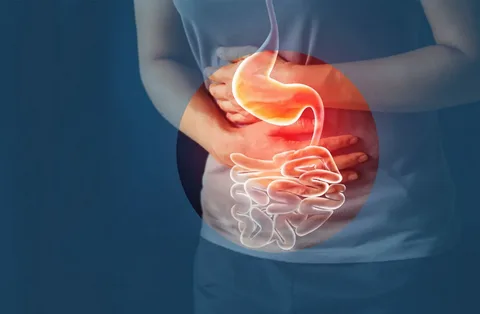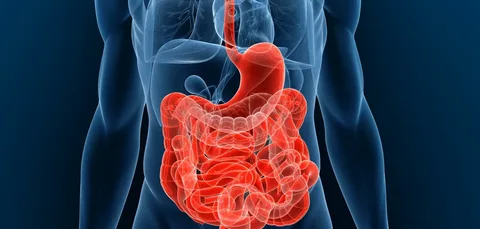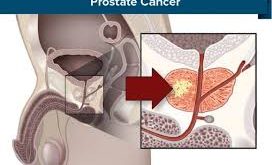Gastrointestinal diseases, commonly referred to as GI diseases, encompass a wide range of conditions affecting the digestive system. From irritable bowel syndrome to ulcers, these ailments can significantly impact one’s quality of life. In this comprehensive guide, we’ll delve into the intricacies of gastrointestinal diseases, exploring their causes, symptoms, treatment options, and prevention strategies.
Understanding the Digestive System
The Role of the Gastrointestinal Tract
The gastrointestinal tract plays a pivotal role in the digestion and absorption of nutrients essential for the body’s functioning. Comprising organs such as the stomach, small intestine, and large intestine, it orchestrates the complex process of breaking down food into smaller molecules that can be utilized by the body.
Key Organs Involved
The digestive system involves several key organs, each with its unique function. The stomach, for instance, secretes gastric juices to aid in the digestion of food, while the small intestine facilitates nutrient absorption. Additionally, the liver and pancreas produce enzymes crucial for digestion.
Functions of the Digestive System
The primary function of the digestive system is to convert ingested food into energy and essential nutrients. Through the process of digestion, carbohydrates, proteins, and fats are broken down into simpler compounds that can be absorbed by the body. Waste products are then eliminated through the excretory system.
Common Types of Gastrointestinal Diseases
Irritable Bowel Syndrome (IBS)
Abdominal pain, bloating, and changes in bowel habits are the hallmarks of irritable bowel syndrome (IBS), a chronic gastrointestinal illness. While the exact cause remains unknown, factors such as diet, stress, and altered gut motility are believed to contribute to its development.
Gastroesophageal Reflux Disease (GERD)
Reflow of stomach acid into the esophagus leads to reflux disease (GERD), which manifests as regurgitation and heartburn. Persistent reflux can lead to complications such as esophagitis and Barrett’s esophagus if left untreated.

Crohn’s Disease and Ulcerative Colitis
Crohn’s disease and ulcerative colitis are inflammatory bowel diseases (IBD) characterized by chronic inflammation of the digestive tract. While Crohn’s disease can affect any part of the GI tract, ulcerative colitis primarily involves the colon and rectum.
Peptic Ulcer Disease
Peptic ulcer disease refers to the formation of open sores or ulcers in the lining of the stomach, small intestine, or esophagus. Helicobacter pylori infection and prolonged use of nonsteroidal anti-inflammatory drugs (NSAIDs) are common causes of peptic ulcers.
Causes and Risk Factors
Dietary Factors
Poor dietary habits, such as consuming spicy foods, caffeine, and alcohol, can exacerbate gastrointestinal symptoms and increase the risk of developing certain diseases.
Genetics and Family History
Genetic predisposition plays a significant role in the development of gastrointestinal diseases, with certain conditions being more prevalent among family members.
Lifestyle Choices
Smoking, excessive alcohol consumption, and lack of physical activity can contribute to the onset and progression of gastrointestinal disorders.
Symptoms and Diagnosis
Recognizing Gastrointestinal Disease Symptoms
Symptoms of gastrointestinal diseases vary depending on the underlying condition but may include abdominal pain, bloating, diarrhea, constipation, and rectal bleeding. Timely recognition and evaluation of these symptoms are essential for accurate diagnosis and treatment.
Diagnostic Procedures
Diagnostic tests such as endoscopy, colonoscopy, imaging studies, and laboratory tests are commonly used to diagnose gastrointestinal diseases and assess their severity.
Importance of Early Detection
Early detection of gastrointestinal diseases can improve treatment outcomes and prevent complications. Regular screenings and consultations with healthcare providers are crucial for maintaining digestive health.

Importance of Early Detection
Early detection plays a crucial role in effectively managing gastrointestinal diseases. By identifying symptoms at an early stage, individuals can initiate appropriate treatment measures, preventing the progression of the condition and reducing the risk of complications.
Timely Intervention
When gastrointestinal symptoms are recognized promptly, healthcare providers can intervene with timely diagnostic tests and evaluations. This allows for the identification of the underlying cause, enabling targeted treatment strategies to be implemented swiftly.
Prevention of Complications
Early detection of gastrointestinal diseases can help prevent the development of serious complications. For example, identifying and treating peptic ulcers early can prevent complications such as perforation or bleeding, which may require emergency medical intervention.
Improved Treatment Outcomes
Treatment outcomes are often more favorable when gastrointestinal diseases are detected early. Early intervention may lead to symptom relief, improved quality of life, and reduced healthcare costs associated with managing advanced or complicated conditions.
Enhanced Quality of Life
Early detection and treatment of gastrointestinal diseases can significantly enhance an individual’s quality of life. By addressing symptoms promptly, individuals can experience relief from discomfort and regain their ability to engage in daily activities without hindrance.
Long-Term Health Maintenance
Regular screenings and early detection of gastrointestinal diseases facilitate long-term health maintenance. Monitoring for disease recurrence or progression allows healthcare providers to adjust treatment plans as needed, ensuring optimal management of the condition over time.
Effective management
In conclusion, early detection of gastrointestinal diseases is paramount for effective management and prevention of complications. Timely intervention not only improves treatment outcomes but also enhances the overall quality of life for individuals affected by these conditions.
Treatment Options
Medications
Medications such as proton pump inhibitors, antacids, anti-inflammatory drugs, and immunosuppressants are commonly prescribed to manage symptoms and reduce inflammation in gastrointestinal diseases.
Lifestyle Changes
Adopting a healthy lifestyle, including dietary modifications, stress management techniques, and regular exercise, can help alleviate gastrointestinal symptoms and improve overall well-being.

Surgical Interventions
In severe cases or when conservative treatments fail, surgical interventions such as bowel resection, strictureplasty, and ostomy may be necessary to manage gastrointestinal diseases effectively.
Prevention Strategies
Dietary Modifications
Following a balanced diet rich in fiber, fruits, vegetables, and whole grains can promote digestive health and reduce the risk of gastrointestinal diseases.
Stress Management
Stress management techniques such as mindfulness, meditation, and relaxation exercises can help alleviate gastrointestinal symptoms and prevent disease flare-ups.
Regular Exercise
Engaging in regular physical activity not only promotes gastrointestinal motility but also enhances overall health and well-being.
Conclusion
In conclusion, gastrointestinal diseases encompass a diverse spectrum of conditions that can significantly impact an individual’s quality of life. By understanding the underlying causes, symptoms, and treatment options, individuals can take proactive steps to maintain digestive health and prevent disease progression. Remember to consult with a healthcare provider for personalized advice and management strategies tailored to your specific needs.
FAQs
- What are the common symptoms of gastrointestinal diseases?
- Is there a cure for irritable bowel syndrome (IBS)?
- How can dietary modifications help manage gastrointestinal symptoms?
- Are there any natural remedies for acid reflux?
- What role does stress play in exacerbating gastrointestinal symptoms?
 Daily Blogger News Stay updated with the latest trends and insights. Your reliable source for daily updates and information.
Daily Blogger News Stay updated with the latest trends and insights. Your reliable source for daily updates and information.







